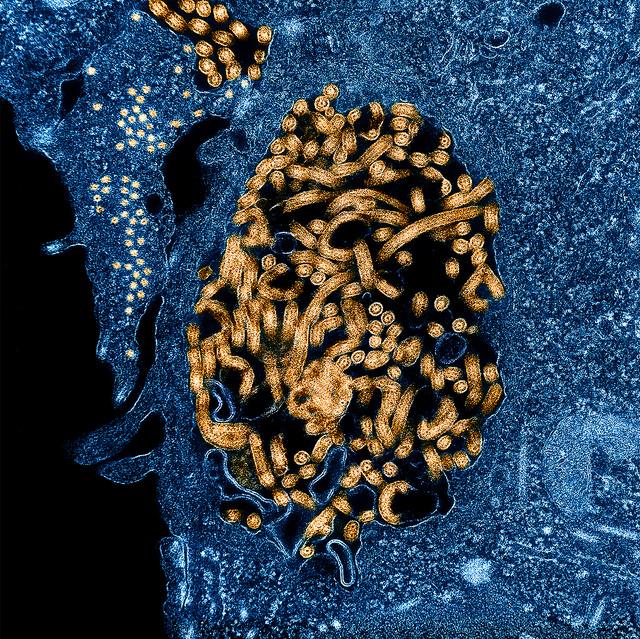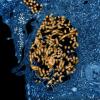A research team based at the University of California (UC)–Santa Cruz has developed a chip-based method to directly detect Ebola and other viral pathogens, which could speed and streamline diagnosis in the field.
The new technique uses two chips: a microfluidic chip to prepare the sample and an optofluidic chip that can optically detect individual viral RNA molecules. The group reported its findings today in Scientific Reports.
In other Ebola developments, Kenya Airways has resumed flights to Liberia and Sierra Leone, and a new environmental study hinted that forest practices in the outbreak region may have increased the risk of Ebola transmission from bats to humans.
Ebola chip test
Holger Schmidt, PhD, the Scientific Report study's senior author and a UC-Santa Cruz engineering professor, said in a university press release today that the current gold standard for detecting the Ebola virus, reverse transcriptase polymerase chain reaction (RT-PCR), is more complex than the new chip method and requires a lab setting.
"We're detecting the nucleic acids directly, and we achieve a comparable limit of detection to PCR and excellent specificity," he said. Scientists from UC–Berkeley, Brigham Young University, and Texas Biomedical Research Institute (TBRI) also helped develop and test the method.
The method was accurate when testing clinical concentrations of the virus at a range that would be seen in an infected patient, Schmidt added.
For their next steps, the group is developing a prototype system to take to the biosafety level 4 lab at the TBRI in San Antonio to test raw blood samples and working on a way to use the system to detect less dangerous pathogens at UC-Santa Cruz.
Other developments
In related news, Kenya Airways had suspended flights to the capitals of Liberia and Sierra Leone last August, which resulted in major losses to the airline, Reuters reported today. A letter from Kenya's health ministry allowed flights to resume now that the Ebola outbreak is under control and added that passenger screening of travelers from affected countries will continue.
Flight suspensions and border restrictions by Kenya and other countries went against International Health Regulations and were said to have hampered the response to and recovery from the epidemic.
Meanwhile, a multiagency report recently released in Monrovia suggested that forest fragmentation—cutting large forests into smaller portions for development activities—has increased the risk of zoonotic transmission of Ebola and other diseases in the three outbreak countries, AllAfrica news reported on Sep 23. The report was released by the Environmental Research Management Foundation and the Environmental Foundation for Africa, in collaboration with the United Nations Development Program.
See also:
Sep 25 Scientific Reports abstract
Sep 25 UC-Santa Cruz press release
Sep 25 Reuters story
Sep 23 AllAfrica story


















